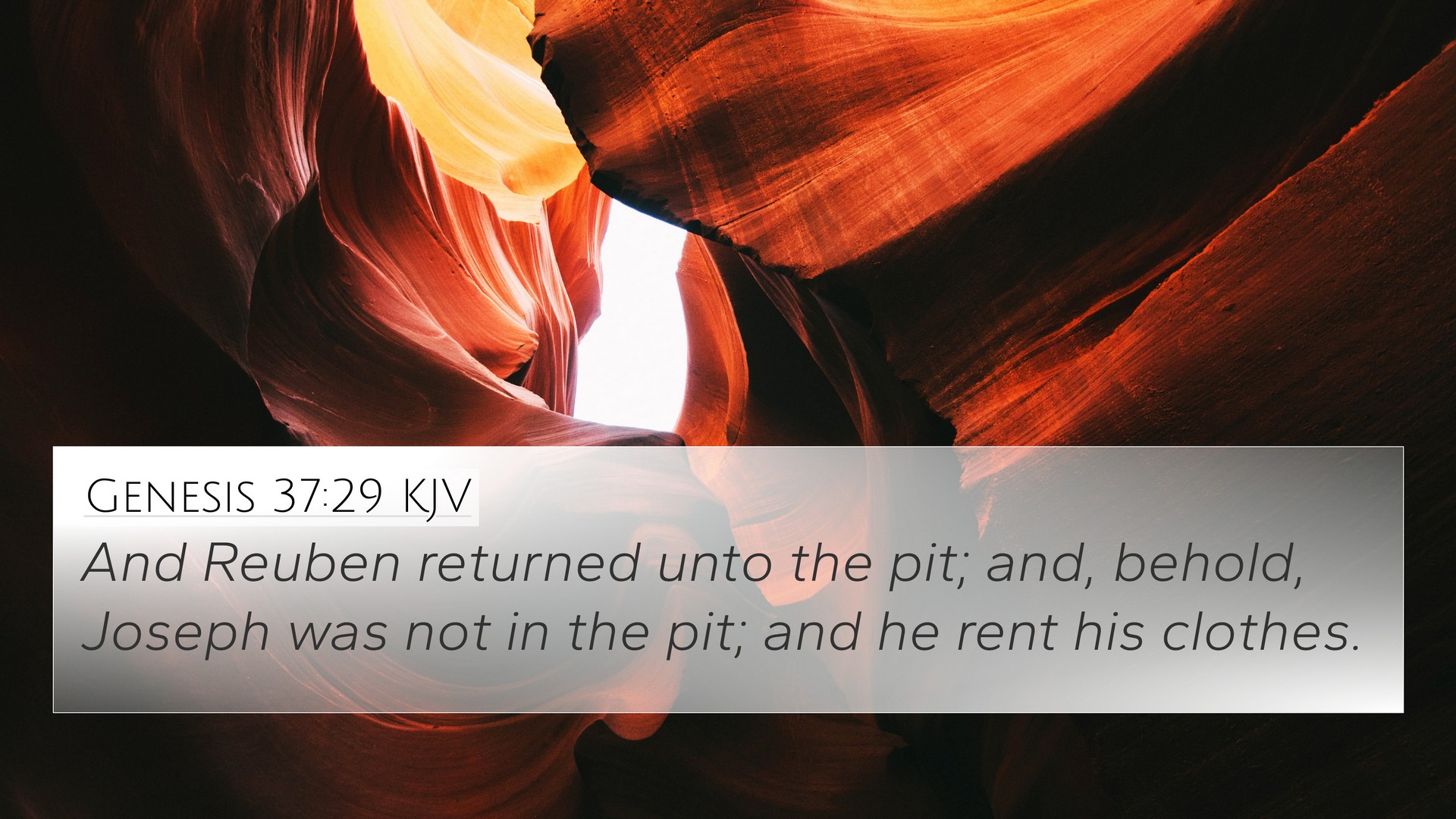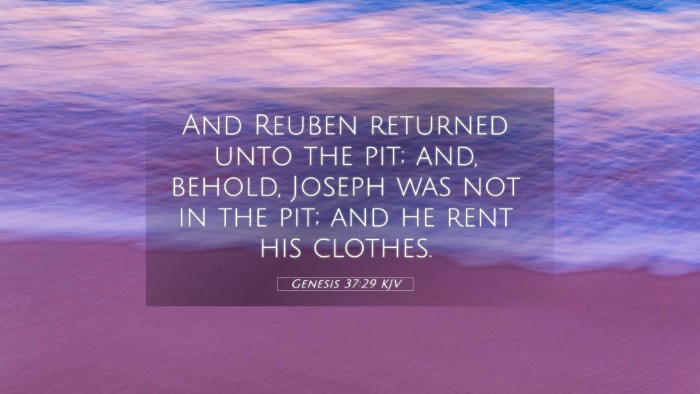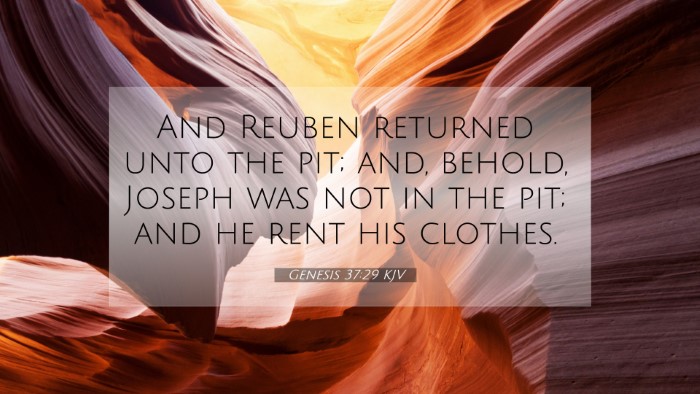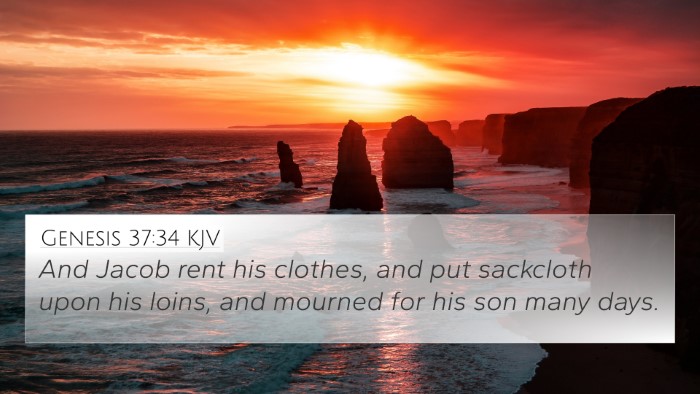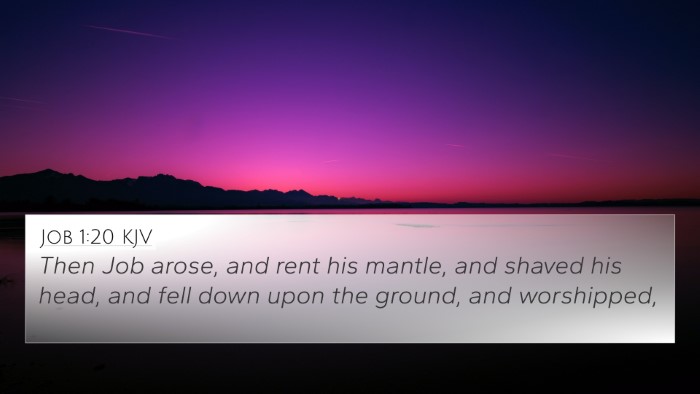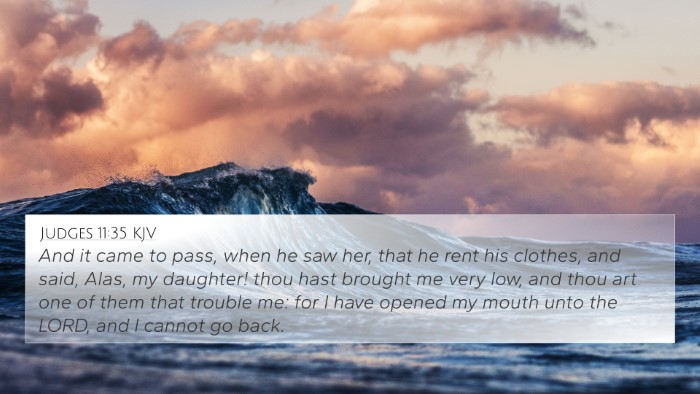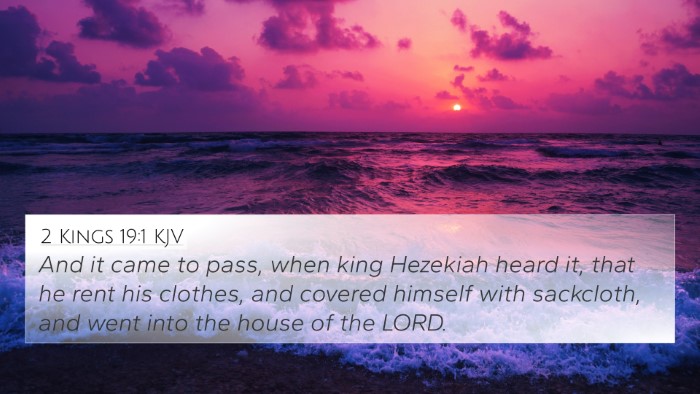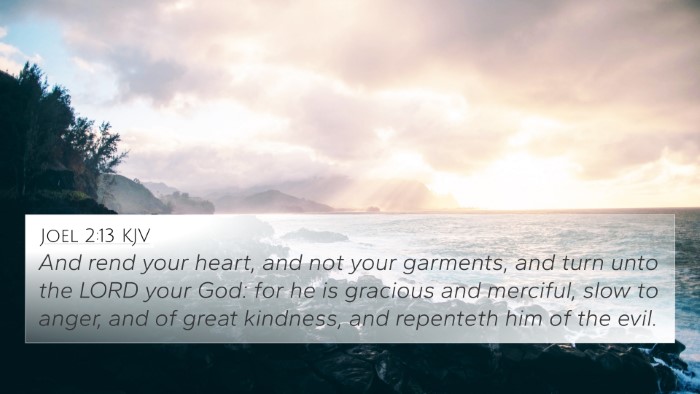Understanding Genesis 37:29
Genesis 37:29 states: "And Reuben returned unto the pit; and, behold, Joseph was not in the pit; and he rent his clothes."
This verse finds itself at a pivotal moment in the narrative of Joseph's life, showcasing the emotional turmoil faced by
Reuben upon discovering that Joseph, his brother, is missing.
Summary of the Verse
This passage captures the moment of realization for Reuben, who, after having left his brothers, returns to find
that Joseph has been taken. His reaction illustrates profound grief and guilt, leading him to rent his clothes,
a common expression of sorrow in biblical times.
Commentary Insights
The insights from public domain commentaries highlight the various aspects of human emotion, divine providence,
and family dynamics present in this verse.
-
Matthew Henry:
Henry emphasizes the tragic consequences of jealousy and betrayal, outlining how Reuben's failure to protect
Joseph leads to this moment of despair. It exemplifies the broader theme of division among brothers and
foreshadows the future reconciliation.
-
Albert Barnes:
Barnes draws attention to the significance of Reuben's role as the firstborn. His leadership should have steered
the brothers away from sin, yet his absence underscores a theme of neglect. The rent clothing symbolizes his
deep sense of loss and responsibility for Joseph's plight.
-
Adam Clarke:
Clarke notes that Reuben's emotional reaction illustrates a sense of familial duty. He reflects on the broader
narrative of Joseph's journey, discussing how this moment set the stage for future developments in the story
of Israel's prophets.
Thematic Connections
The themes in Genesis 37:29 align with various biblical narratives, drawing parallels to several other scriptures.
This verse serves as a focal point for exploring connections between familial relationships, betrayal, and divine
intervention.
Bible Cross References
- Genesis 37:18-20: Discusses the plotting against Joseph by his brothers.
- Genesis 39:1-6: Chronicles Joseph's subsequent journey into Egypt after his disappearance.
- Genesis 42:21: Highlights the remorse felt by the brothers later in their story.
- Matthew 27:5: Provides the New Testament parallel of remorse, showcasing a connection to betrayal.
- Luke 15:20-24: The return of the prodigal son reveals themes of loss and reconciliation similar to Reuben's experience.
- Psalms 22:1: David's cry of anguish reflects the emotional turmoil present in Reuben's reaction.
- Hebrews 11:22: Recognizes Joseph's faith and future legacy amid family loss.
Emotional and Spiritual Lessons
Reuben's dismay conveys crucial lessons about accountability and the repercussions of our actions. The emotional
weight of this moment serves to remind readers of the importance of unity and the devastating effects of conflict
within families.
Broader Implications
The ramifications of this event not only affect the characters involved but also influence the unfolding story of
the Israelites. It sets the stage for a profound narrative of redemption, underscoring God's providence woven
throughout human history.
Conclusion
Genesis 37:29 illustrates a critical juncture in Joseph's life and the narrative of the Israelite family.
Understanding this verse in relation to others enhances our comprehension of scripture as a cohesive whole,
revealing the interconnectedness of biblical themes across both the Old and New Testaments.
Additional Study Tools
- Utilize a Bible concordance for finding related passages and themes.
- Refer to a Bible cross-reference guide for deeper insight into scriptures that resonate with Genesis 37:29.
- Engage in cross-reference Bible study techniques to enhance understanding of scripture connections.
- Explore comprehensive Bible cross-reference materials for extensive thematic studies.
Final Thoughts
Delving into Genesis 37:29 not only unearths the gravity of Reuben's emotional journey but also connects readers
to a broader theological dialogue about sin, loss, and redemption that threads through the entirety of the Bible.
